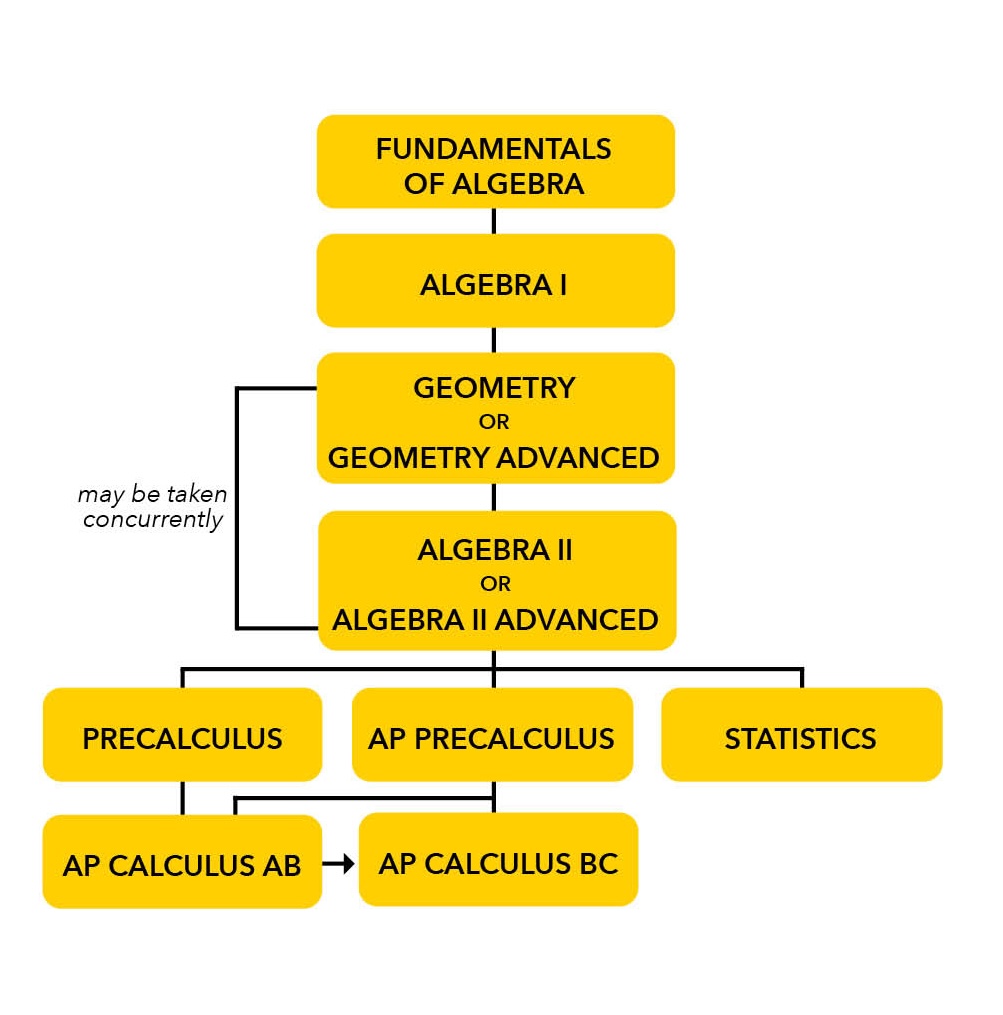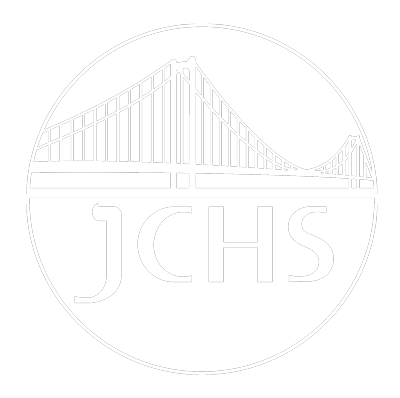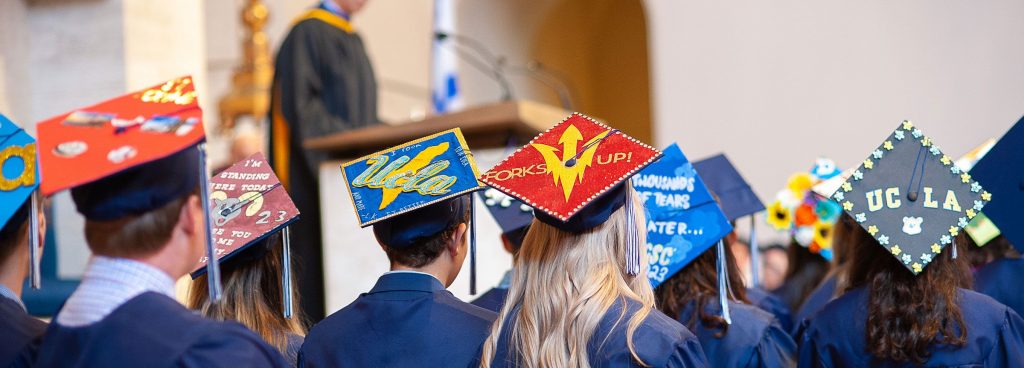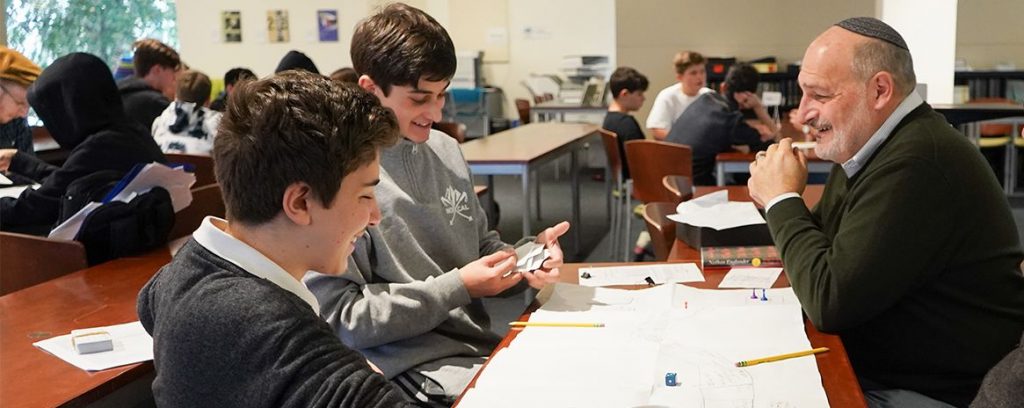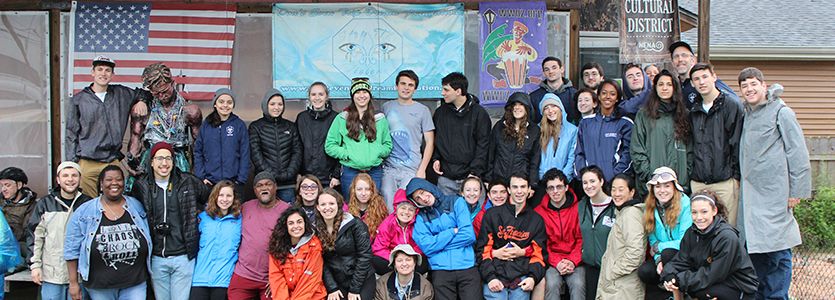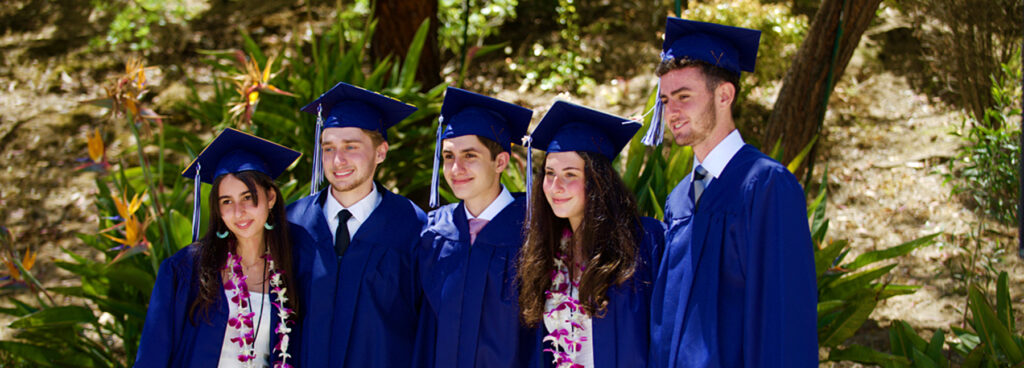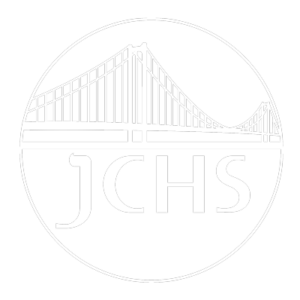Math
Through mathematics at JCHS, students explore the connections that mathematics have to other academic disciplines and to problems from the real world.
Our approach to math instruction is informed by research by Dr. Jo Boaler and Dr. Peter Liljedahl, which has shown consistently that students learn the most when they are grappling with hard problems and feel some “productive discomfort.” While all math classes at JCHS include some traditional, direct instruction, our teachers emphasize students playing an active role in their own learning and engaging with unfamiliar, difficult problems.
Our math classes require students to lean into this productive discomfort, where students learn to think like mathematicians and explore unfamiliar concepts through discovery-based problem-solving. This requires students to embrace mistakes as essential to the learning process and work with peers along their journey.
Understanding the Differences in Course Levels
At-Level Math Classes
These classes focus on building foundational skills in the core high school mathematical disciplines of Elementary Algebra, Geometry, Advanced Algebra, Precalculus, and/or Statistics. These classes emphasize procedural fluency and repeated practice of those skills that will most critically serve students in college and beyond. These classes also move at a more measured pace and ensure students are prepared for the next level class.
These classes emphasize the development of a “mathematical mindset” by introducing students to unfamiliar problems on a regular basis. Students work with peers on discovery-based problem-solving activities with direct teacher support.
Advanced and AP Math Classes
These classes aim to help students build advanced problem-solving skills that they will need during and after AP Calculus, in particular those students who aspire to highly selective STEM programs. While these classes do cover more material and move at a more rapid pace than the corresponding at-level class, the key difference is more one of attitude and approach.
These classes emphasize the development of a “mathematical mindset” by challenging students to tackle difficult and unfamiliar problems on a daily basis. In small groups, students learn to explore new topics with minimal direction from the teacher. Initially, this often feels challenging because it requires students to think deeply and be open to trying different approaches than those that they may have used in previous classes.
Math Requirements: All students must complete three years of core math courses through at least Algebra II. A course matching assessment is used to determine the appropriate level of math for each incoming student. Mastery of algebra is foundational for success in high school math and science, and many ninth graders at JCHS enroll in Algebra I. Students who excel in Algebra I and wish to reach AP Calculus in high school may, with department approval, either complete a summer Geometry course followed by Algebra II Advanced, or enroll in Geometry and Algebra II Advanced concurrently as 10th graders.
CORE COURSES
ELECTIVE COURSES
MATH COURSE SEQUENCE
